Critical Midwifery Studies
Part 5
Futurist Perspectives
Part 5 is co-hosted by Midwifery Science, Amsterdamumc, & AVAG (Midwifery Academy Amsterdam & Groningen).
Without Community there is No Liberation: A Freedom Dream for a More Humane Midwifery
by Madyasa Vijber
This lecture will be examining ways to move from critique itself, towards change in a way that is truly liberational. Inspired by Audre Lorde, Tricia Hersey, Mia Birdsong and adrienne maree brown, Madyasa will connect liberational practices with emergent strategies and the importance of community and interdependence. What would a humane form of midwifery look like? How will we get there? Using Black Feminist theory to answer these questions, she is hoping to set the tone for this last day towards futurist perspectives, and offering a hopeful vision on bringing change.
Dig deeper
Visual Notes

What Can We Learn from Indigenous Midwifery in Mexico?
by Montse Olmos
The lack of access to medical facilities and pharmaceuticals can sometimes be a blessing in disguise. Most of us have only seen birth happen within the Medical Industrial Complex, however, in rural communities of Mexico, birth still happens on a petate (handwoven palm mat placed on the floor) next to the hearth of the home. Ms. Olmos will share important lessons from rural home birthing that can (and should be) applied to modern midwifery and obstetrics in urban contexts if we wish to improve overall health outcomes for birthing people and babies. This knowledge share will happen through story-telling, similar to how Ms. Olmos first learned about birth: sitting at the feet of her elders and listening attentively. Ms. Olmos will share the perspective and worldview of Totonaca, Nahuatl & Mestiza communities in regards to pregnancy, birth and the forty-day postpartum rest, in hopes that humble minds will listen as well.
Visual Notes
A Comradely Politics of Gestational Labour: How Might We Care For and Against Uterine Work?
by Sophie Lewis
To recognize that pregnancy is work under capitalism is not to be "anti" pregnancy: on the contrary, it is a necessary step towards reorganizing and perhaps redistributing gestation on the basis of creative comradeliness, real safety, pleasure, and partial automation (maybe). As the militant antiwork feminists of the 1970s Wages for Housework movement proposed, "We want to call work what is work so that eventually we might rediscover what is love." Drawing on her book Full Surrogacy Now: Feminism Against Family, in this talk, Sophie Lewis will explore the "sympoetic," two-directional messiness of gestating, its work and non-work characteristics, and finally its production of intimate strangers who do not necessarily or automatically belong to us … but who deserve to be cared for as comrades in turn.
Dig deeper
Visual Notes
Reproductive and Transformative Justice
by Mars Lord
Reproductive and transformative justice are not just words but are, and should be, a lifestyle. In my two decades of birth keeping, I have seen the difference that this makes in lives. We recognise performative gestures and their lack of impact in the continuing scandal of Black maternal health.
The questions that we will be looking at involve lack of action, the desire to keep the focus of blame from the source and why ‘pretty’ activism is the easier buy in.
It is important that we look unflinchingly at what both reproductive and transformative justice mean. When we look to studies, we see that very few, if any, go to the heart of systemic racism, preferring to lean towards race science and the ‘there’s nothing that we can do’ argument. When looking at studies and reports such as the MBRRACE report, it is easy to be caught up with the headlines and the heavy hitting statistics. What we can fail to do is to read the unsexy parts that show us Black and brown bodied women/people are dying of the exact same causes as their yt bodied counterparts. There is much conversation and much talk about further research, but there is very little action.
When we practise reproductive justice, we continue to grow and reproduce more activism. When we are transformative, we change not only the systems and those around us but we also transform and change ourselves.
Visual Notes

Futurist Perspectives / Emergent Strategies
by Sabia Wade
In this talk, Sabia will discuss futurist perspectives under the framework of Birth Neoterism. A Birth Neoterist is a person who is forward-focused and dedicated to innovation and sustainability to create a pathway to a new reality for birth. In understanding what the future of birth will look like, we need to first understand reproductive justice principles and its relationship to historic and current times/issues. Once we have a core understanding of our fundamentals, we analyze that information and create new ways to dismantle the current reality and pave new ways for the future. In doing this work, we must look inward, utilizing trauma and somatic approaches to lean into our body and heal. By regaining a deep connection between body and mind, we begin to learn our individual algorithm as an act of resistance. Finally, we implement accountability practices so that we maintain a space of learning, expansion, cultural humility, and grace as we achieve collective liberation.
Visual Notes

Take Critical Midwifery Studies Further with Us!
by Bahareh Goodarzi
The idea of the summerschool was born in a park in Amsterdam during the covid-lockdown over Surinamese food. Soon we were joined by people from all over the world. This is our call to action: get involved!





